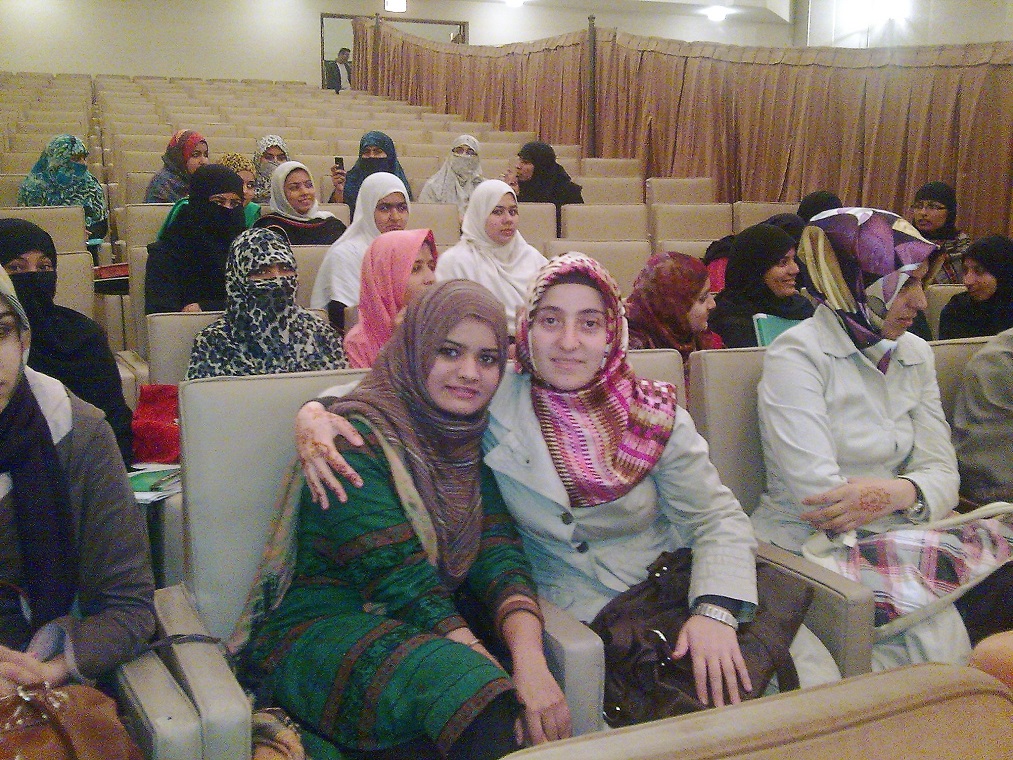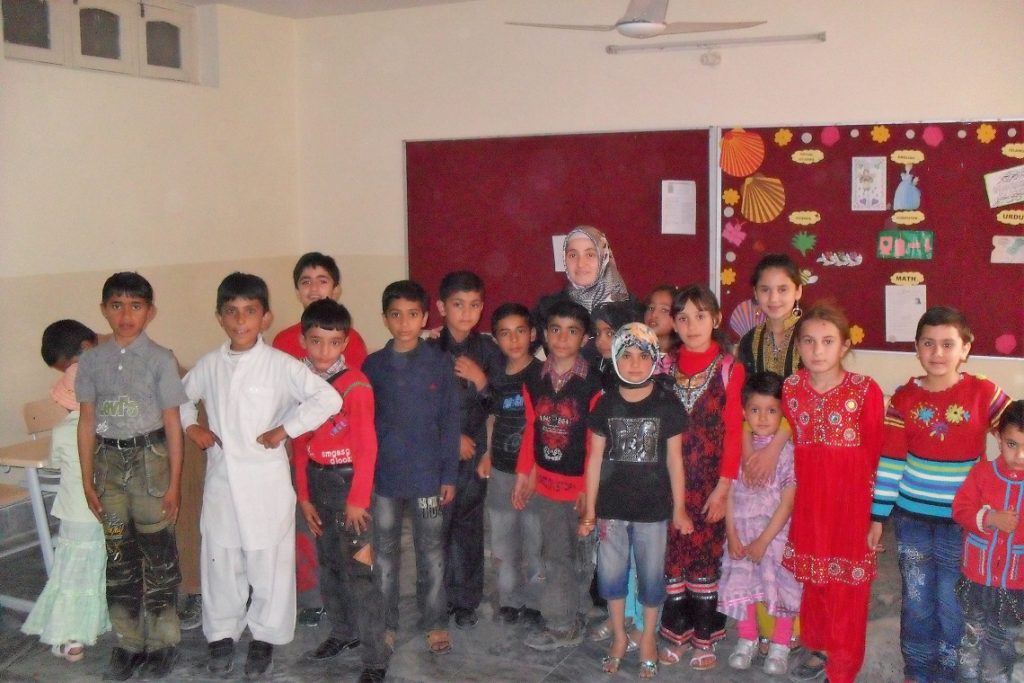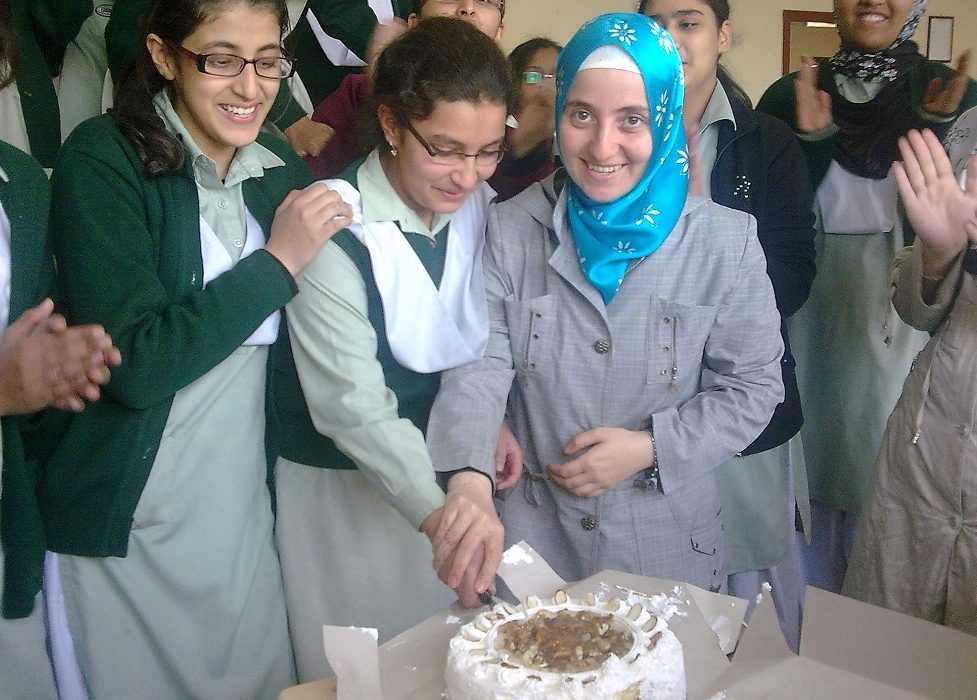English teacher Gönül Barış (3): I experienced the most significant ‘firsts’ of my life in Quetta, what befell me on my way there was like a movie scene

What ensued in the business trip of the Karachi Chamber of Commerce to Turkey?
April 8, 2022
On our 500th-day milestone, we still have so many stories to tell!
April 13, 2022In this part of our interview, PakTurk Schools English teacher Gönül Barış narrates her teaching career she started right after graduating from university. she candidly shares an incident no different than a movie scene on the way to Quetta, her first place of duty, which involves a gun on her head, her resistance to hand over her bag, her first students and the first memories she left in that city.
-You taught right after you graduated, right? Where was your first posting?
Yes, I started teaching English at the PakTurk Schools in Quetta that year. When I was a student, I had a special interest in Quetta. Because from there arrived the feta cheese, sticks crackers, and other delicacies which we could not find in Lahore. I also knew Quetta had a cooler climate. Those sentiments must have worked as prayers. While we were on summer break, they called my husband and said we were posted to Quetta. How happy I was! I kept on saying to myself, “Oh my! I’m going to Quetta! There’s feta cheese there!” 😊
We took a flight from Istanbul to Karachi. We planned to travel to Quetta by bus, but the roads were blocked due to some protests. We could find no intercity bus. There was an older brother and a newly married couple with us, but they were to go to Khairpur Mirs. When we couldn’t take a bus to Quetta, we decided to go to Khairpur Mirs with them and wait until the roads were opened. We ate at McDonalds right across the airport terminal. We also bought takeaways. We hired a taxi and set off together. The taxi driver was taking different routes, trying to take us safely to our destination.
Suddenly two motorcycles showed up at each side and armed men stopped the taxi. First, they put a gun to my husband’s head. They took his phone and watch. Then they put the gun to my head… I felt the cold touch of the barrel. The bandit wanted to take my bag, and I pulled it back. I should have let it go, right? The man pulled it again and I pulled it back. The bandits make my friend remove her tag her wrist and her rings from her fingers. We were newly married; we had worn a few pieces of gold and left for Pakistan. Yet, we knew Pakistan. Why did we wear our gold? We were to be blamed. When the man could not get my bag, he opened it. I had a mirror and personal care items in that. The man taking an item and I was pulling back another. I probably made those moves in shock.
-Things that cannot be done with a gun to your head, right?
He said, “What exactly was your problem? What would have happened differently if you had simply handed the man your bag?” I don’t know what ailed me that moment. Actually, I had nothing valuable in that bag. They did not touch my husband’s and his friend’s bags. Both had Jawshan booklets in their bags. I say those booklets must have protected those bags, there is no other explanation. My husband had money in his bag. His friend also had bracelets in his. The bandits never touched their bags. They even grabbed the takeaway packages we bought for the trip. There was also a set of Turkish coffee cups I had not put in the trunk so they would not break, and they grabbed those too. When the men left, we drove to a police station. Nothing came out of that. Later on, we took a bus to Khairpur Mirs. We stayed at guests at Teacher Rüveyda’s house. We were to stay for a few days before taking a bus to Quetta, but a flash-flood struck in the summer of 2010 and all roads were blocked. We had to report at the school in Quetta too. We waited for 12 days. Finally, we decided to take a flight to Quetta. We travelled to Karachi from Khairpur Mirs, and took a flight from there to Quetta.
THE PARENTS WERE ELATED WHENEVER WE VISITED THEM
-What were your first impressions of Quetta? What kind of a city and people welcome you?
When I first arrived, I found it a rural place. It was hard to spot trees. Lahore was a green city, so was Karachi. Quetta is of a different geography. People are also different. They are not mild-tempered like in Lahore, they are sturdy. The local dishes are taste still the same Pakistani hot and spicy, but they are culturally a little closer to Turkish cuisine. People never step into their houses with their shoes. They sit on floor cushions. Students’ parents were elated whenever we made home visits. It was welcoming someone from another culture into their homes. Sometimes the parents would invite their neighbours and relatives when we were to visit them. They would introduce us to everyone one by one, saying “Here is our daughter’s teacher”. The parents liked it much when their children spoke to us in English. They were happy and proud of their children’s achievements. We could establish a warm and sincere rapport will all parents.
When we first arrived, we couldn’t find a house right away. We stayed as guests at a friend’s house for about a month. I still had to take classes at the school. I was in the first term of my pregnancy back then. When I entered class on the first day, I got sick. I had to go to a doctor. I called my husband, but he did not have a car and it was impossible for him to come right away. Ms. Ghazala, a teacher I met that day, said, “I’ll take you to the doctor.” We both set off. The principal manager saw us and drove us to the hospital himself. Since the private hospitals were closed at that hour, we went to a public hospital. Actually, I had my guess about the setting. We used to visit a public hospital in Lahore, but the setting was different in Quetta. Two doctors were sitting and many women were trying to explain their problems. My teacher friend pushed me forward. One way or another, we explained our problem. The doctors said I had to go for the ultrasound.

There was a long queue in front of the ultrasound ward. Just when there were only two people left before it was my turn, the woman in charge said, “We’re on a lunch break.” I couldn’t take it anymore and wept. Mrs. Ghazala tried to console me saying, “Okay, don’t cry, we’ll find you a doctor, you’ll be fine.” We left the hospital and came home. In the evening, my husband borrowed a car from someone, and we went to the hospital again. Mrs. Ghazala’s care and affection that day moved me so much. It felt no different than a mother’s care for her child. She might not even come to the hospital with me. I was someone she met on that very day.
I used to feel very sleepy during my early pregnancy. I used to sleep with my head on the table in the teachers’ room. Teachers were very helpful. They used to wake me up before the classes. I am grateful to them. Students were also very supportive. They were aware I was a fresh teacher. They did not force me; they were very helpful. Other employees of the school too were very supportive.
I WAS MOVED WHEN A STUDENT FOUND ME AFTER YEARS
Meanwhile, we had difficult living conditions. We lived in a gated housing society due to security issues and we would not go out alone. Quetta differed from other cities in this sense. For example, my husband would not wear his tie on the way to school. Some people would react, because. They used to say “Only Christians wear ties!” Even some people living in Lahore were reluctant to come to Quetta. Once it was the time for academic coordination meetings, and a Pakistani deputy principal colleague from Lahore had to visit our school to deliver a presentation. Before she set off, she phoned me and said, “I’m so scared to get there, what am I going to do?” I told our school administrators about this. They said, “We as foreigners are afraid of living here. Why is she so afraid? Quote us as an example, and nothing will happen.” Later, that colleague visited our school.
-You had your first teaching experience in Quetta. Did your attributes of teaching and mentorship make a difference in your communication with students?
While we were mentors in the school hostel, we were more like sisters to the boarding students. When you become a teacher, you need to be a little more composed. I was teaching in the primary school in Quetta. Even though they were so young, the male students sometimes proved challenging because I always wore a smiling face. Over time we got used to one another. Years later, a girl whom I taught English in 2010 when she was in Class 4 found me. She had reached out to one of our school administrators and said, “I never forget Teacher Gönül. Does she have a phone number or social media account?” I just remember her younger self. She sent me her photo; I could not recognize her. She grew to become a young girl. She later sent a photo of me with her class. She kept on saying, “I have never forgotten you. You have always been on my mind. I have always wanted to reach you.” As years passed, she got married. She would even visit the United States. She said, “I definitely wish to visit you.” She moved me a lot. She has not forgotten no matter how many years have passed since then.
I lived in Quetta for three years. It was an exquisite experience for me. It was the first years of my teaching, marriage and motherhood. We forged very nice friendships. Later, my husband said we would be posted to another country. I became sad and wept because we were leaving. I looked at my Pakistani colleagues and wept. I came home and wept. One day, when the principal of our school visited, I said to him, “I don’t want to go anywhere else. Why do you send us away? Despite all the difficulties, I want to stay here.” He lightly joked and said, “Don’t say so. Maybe you’ll go to a more difficult place.” Whenever I wept, my friends were surprised. “Maybe you will go to Turkey, maybe to a better place,” they used to say. it seemed as if I was leaving my homeland, as if I was leaving my own family, my siblings. Later, we learned our posting was cancelled. I was very happy, but it didn’t last long. We were posted to Lahore.

-How was your pregnancy and delivery process? Have you had any difficulties?
My parents came to Pakistan soon before the birth of our child. The day they arrived; the gas supply had been cut off. Such things would happen often there, and the connection would be restored within two or three days. We were newly married and we had a few items at home. We had bought a sofa set and a floor mattress for ourselves. We did not have a bed. We couldn’t afford to buy a bed for my parents. We decided to buy them an inflatable mattress. When I went to Lahore with my husband, we bought one with its pump from a large market. We brought it home and inflated it. I laid the bed sheets nicely and propped up the pillows on the bed. Quetta has icy winters. I barely prepared dinner on a small stove as there was no gas supply. That air mattress had stored the cold. My father woke up at night and said, “I’ve never felt this cold all my life!” We didn’t know what to do. They sell Afghan cushions in Quetta. The next day we purchased cushions, but my parents couldn’t get comfortable with them either. Nor could we say we had no money to buy another mattress. Later, we borrowed a mattress and bed from a friend.
THE NIGHT MY SON WAS BORN, MY PATERNAL MOTHER DIED
Although my father did not know their language, he became very good friends with Pakistanis. He went to shopping with them. Since my father is an ironsmith, he also did the ironwork of our school. My father stayed with us for three months and my mother for four. It was great they stayed with me before the birth and during the first months of the baby. My father still cannot forget his friends there. Thanks to them all, they were very protective. They phoned my father and did welfare checks even after he left. My mother used to come to the school to care for our baby. She became very good friends with a Pakistani lady who used to prepare us tea there. She and my mother communicated through the tongue of disposition. The warmth between the people of Pakistan and my mother brought them together. My parents felt depressed by the living conditions at first, but they loved people so much. Later, when we moved to Lahore, they visited Pakistan again. When my father returned to Turkey, I learnt he said to those there, “Don’t think you are serving here, the real service to humanity is there!”
Actually, I wished to go to Turkey for the birth, but it was the active school term and they needed a teacher. My husband also supported me to stay. When I didn’t go to Turkey, my parents came to Pakistan instead. There is a military hospital in Quetta. We chose it because it was the best and the cleanest hospital. We checked in at the hospital, but since my mother did not speak the local language, a sister would stay with me. The hospital officials admitted no male visitors into the hospital after 11 pm. They asked my husband to leave too. That night, my son Burak was born. Hospital conditions were ‘inexplicably great’ for sure. Especially my mother acted very meticulous. She said there were bugs where they placed the new-borns. The insects emerged when they turned on the heater. My mother signalled to the nurses, “One of those insects will enter the child’s ear!” “Nothing will happen,” the nurse would say with their hand gestures. They too got used to that setting and to the system.
Since Burak was born with a little complication, he was kept in the incubator for a day. They brought him the next day, but he was always sleeping. We wanted to wake him up and suckle him, but we did not notice he had inhaled milk. In an instant, the little child turned purple, he could not breathe. The nurses rushed and got him. Thank goodness, nothing bad happened. There was no one with me that day; my mother could not come. When my accompanying friend went with the baby, I was alone in the room with the baby’s blanket in my hands. I could not get up. I could not walk. I felt so bad that day. I sensed my parents had been upset too. They told me they had been sad because I had not undertaken a normal delivery, but it turned out they had gotten the news of my paternal grandmother’s death that day. My grandmother passed away the same night when my son was born. My parents could not attend to the funeral because it was impossible for them to arrive in Turkey from Quetta on the same day. My father had come to Pakistan for me and he experienced that agony. We were upset. “I cannot believe my mother passed away,” he says still, because he could not be present at her mother’s funeral. This is one of the hardest parts of living far away from one’s homeland.
To be continued…
***
Part Two:





No Comment.